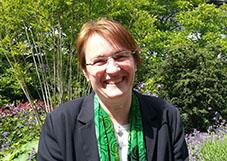ProjektGraduiertenkolleg "Molekulare Mechanismen bakterieller Überlebensstrategien"
Grunddaten
Titel:
Graduiertenkolleg "Molekulare Mechanismen bakterieller Überlebensstrategien"
Laufzeit:
01.04.2012 bis 31.03.2021
Abstract / Kurz- beschreibung:
Leitthema dieses Graduiertenkollegs sind die molekularen Grundlagen bakterieller Überlebensstrategien.
In idealer Umgebung vermehren sich Bakterien exponentiell. Jedoch herrschen
an den meisten natürlichen Standorten Bedingungen, die das Wachstum verlangsamen,
die Zellen schädigen oder die Habitatbesiedlung durch Konkurrenzorganismen oder
durch Abwehr eines Wirtes erschweren. Dieser Selektionsdruck, der die bakterielle Evolution
entscheidend prägte, brachte hocheffiziente Strategien hervor, mit denen Bakterien ungünstige
Bedingungen überdauern oder überwinden konnten. Dieses Überlebensstrategien
sind daher essentielle Mechanismen, um Nischen zu bilden und neue Lebensräume und
Wirtsorganismen zu besiedeln. Folglich ist diese Thematik für die gesamte bakterielle Ökologie
und Physiologie, sowie für die Ausbreitung bakterieller Krankheitserreger und die Entwicklung
antibakterieller Wirkstoffe von größter Relevanz und somit eine zentrale Schnittstelle
mikrobiologischer Forschung. Dieser Grundgedanke des Graduiertenkollegs wurde in
der ersten Förderperiode unter Verwendung der sich rasch entwickelnden neuen Methoden
der Postgenom-Ära verfolgt und führte zu herausragenden Entdeckungen. In der kommenden
Förderperiode soll dieses Konzept systematisch weiterverfolgt werden. Dabei wird auf
zwei grundlegende Mechanismen bakterieller Überlebensstrategien fokussiert: Der Projektbereich
A behandelt bakterielle Überlebensstrategien, die auf intrazellulären Reaktionen
beruhen, im Wesentlichen auf speziellen Anpassungen des bakteriellen Stoffwechsels. Im
Projektbereich B stehen Überlebensstrategien im Mittelpunkt, bei denen Bakterien mit Hilfe
bioaktiver Verbindungen das Überleben in der Umwelt sichern.
In idealer Umgebung vermehren sich Bakterien exponentiell. Jedoch herrschen
an den meisten natürlichen Standorten Bedingungen, die das Wachstum verlangsamen,
die Zellen schädigen oder die Habitatbesiedlung durch Konkurrenzorganismen oder
durch Abwehr eines Wirtes erschweren. Dieser Selektionsdruck, der die bakterielle Evolution
entscheidend prägte, brachte hocheffiziente Strategien hervor, mit denen Bakterien ungünstige
Bedingungen überdauern oder überwinden konnten. Dieses Überlebensstrategien
sind daher essentielle Mechanismen, um Nischen zu bilden und neue Lebensräume und
Wirtsorganismen zu besiedeln. Folglich ist diese Thematik für die gesamte bakterielle Ökologie
und Physiologie, sowie für die Ausbreitung bakterieller Krankheitserreger und die Entwicklung
antibakterieller Wirkstoffe von größter Relevanz und somit eine zentrale Schnittstelle
mikrobiologischer Forschung. Dieser Grundgedanke des Graduiertenkollegs wurde in
der ersten Förderperiode unter Verwendung der sich rasch entwickelnden neuen Methoden
der Postgenom-Ära verfolgt und führte zu herausragenden Entdeckungen. In der kommenden
Förderperiode soll dieses Konzept systematisch weiterverfolgt werden. Dabei wird auf
zwei grundlegende Mechanismen bakterieller Überlebensstrategien fokussiert: Der Projektbereich
A behandelt bakterielle Überlebensstrategien, die auf intrazellulären Reaktionen
beruhen, im Wesentlichen auf speziellen Anpassungen des bakteriellen Stoffwechsels. Im
Projektbereich B stehen Überlebensstrategien im Mittelpunkt, bei denen Bakterien mit Hilfe
bioaktiver Verbindungen das Überleben in der Umwelt sichern.
Beteiligte Mitarbeiter/innen
Leiter/innen
Mathematisch-Naturwissenschaftliche Fakultät
Universität Tübingen
Universität Tübingen
Interfakultäres Institut für Mikrobiologie und Infektionsmedizin (IMIT)
Interfakultäre Institute
Interfakultäre Institute
Ansprechpartner/innen
Mathematisch-Naturwissenschaftliche Fakultät
Universität Tübingen
Universität Tübingen
Interfakultäres Institut für Mikrobiologie und Infektionsmedizin (IMIT)
Interfakultäre Institute
Interfakultäre Institute
SFB-TR 261 - Zelluläre Mechanismen der Antibiotikawirkung und -produktion (ANTIBIOTIC CellMAP)
Sonderforschungsbereiche und Transregios
Sonderforschungsbereiche und Transregios
Exzellenzcluster: Kontrolle von Mikroorganismen zur Bekämpfung von Infektionen (CMFI)
Zentren oder interfakultäre wissenschaftliche Einrichtungen
Zentren oder interfakultäre wissenschaftliche Einrichtungen
Kaysser, Leonard
Mathematisch-Naturwissenschaftliche Fakultät
Universität Tübingen
Universität Tübingen
Pharmazeutisches Institut
Fachbereich Pharmazie und Biochemie, Mathematisch-Naturwissenschaftliche Fakultät
Fachbereich Pharmazie und Biochemie, Mathematisch-Naturwissenschaftliche Fakultät
Niedermeyer, Timo
Mathematisch-Naturwissenschaftliche Fakultät
Universität Tübingen
Universität Tübingen
Interfakultäres Institut für Mikrobiologie und Infektionsmedizin (IMIT)
Interfakultäre Institute
Interfakultäre Institute
Institut für Medizinische Mikrobiologie und Hygiene
Department für Diagnostische Labormedizin, Kliniken und klinische Institute, Medizinische Fakultät
Department für Diagnostische Labormedizin, Kliniken und klinische Institute, Medizinische Fakultät
Mathematisch-Naturwissenschaftliche Fakultät
Universität Tübingen
Universität Tübingen
Interfakultäres Institut für Mikrobiologie und Infektionsmedizin (IMIT)
Interfakultäre Institute
Interfakultäre Institute
Institut für Medizinische Mikrobiologie und Hygiene
Department für Diagnostische Labormedizin, Kliniken und klinische Institute, Medizinische Fakultät
Department für Diagnostische Labormedizin, Kliniken und klinische Institute, Medizinische Fakultät
Mathematisch-Naturwissenschaftliche Fakultät
Universität Tübingen
Universität Tübingen
Interfakultäres Institut für Mikrobiologie und Infektionsmedizin (IMIT)
Interfakultäre Institute
Interfakultäre Institute
Mathematisch-Naturwissenschaftliche Fakultät
Universität Tübingen
Universität Tübingen
Institut für Organische Chemie
Fachbereich Chemie, Mathematisch-Naturwissenschaftliche Fakultät
Fachbereich Chemie, Mathematisch-Naturwissenschaftliche Fakultät
Kleindienst, Sara
Forschungsbereich Angewandte Geowissenschaften
Fachbereich Geowissenschaften, Mathematisch-Naturwissenschaftliche Fakultät
Fachbereich Geowissenschaften, Mathematisch-Naturwissenschaftliche Fakultät
Interfakultäres Institut für Mikrobiologie und Infektionsmedizin (IMIT)
Interfakultäre Institute
Interfakultäre Institute
Exzellenzcluster: Kontrolle von Mikroorganismen zur Bekämpfung von Infektionen (CMFI)
Zentren oder interfakultäre wissenschaftliche Einrichtungen
Zentren oder interfakultäre wissenschaftliche Einrichtungen
Interfakultäres Institut für Mikrobiologie und Infektionsmedizin (IMIT)
Interfakultäre Institute
Interfakultäre Institute
Lokale Einrichtungen
Interfakultäres Institut für Mikrobiologie und Infektionsmedizin (IMIT)
Interfakultäre Institute
Universität Tübingen
Universität Tübingen
Forschungsbereich Angewandte Geowissenschaften
Fachbereich Geowissenschaften
Mathematisch-Naturwissenschaftliche Fakultät
Mathematisch-Naturwissenschaftliche Fakultät
Institut für Organische Chemie
Fachbereich Chemie
Mathematisch-Naturwissenschaftliche Fakultät
Mathematisch-Naturwissenschaftliche Fakultät
Geldgeber
Bonn, Nordrhein-Westfalen, Deutschland



